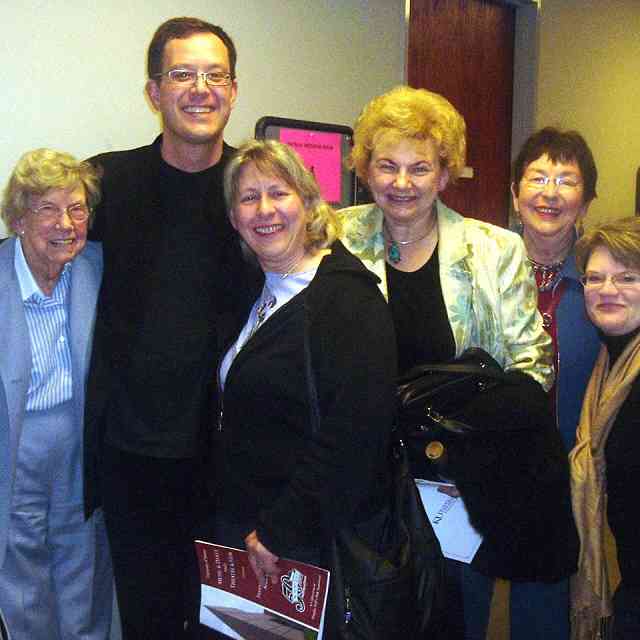I was six years old when I started singing for opera companies and ten years old when I finally decided to play violin.
For me it was all about love. I had loved singing, but then, I realized I loved something more than singing: the sound that was coming from the orchestra pit—beautiful violin sounds. I followed my love and joined the conservatory, where I spent twelve years of my life, from fifth grade to the end of the college.
I remember my first audition day. I was surrounded by the kids who had nothing but love and excitement towards what they were about to do. We had no idea about the music, performing, theory, history, technique or musicality. At the end of the day we were the thirteen lucky winners out of one hundred twenty people who got accepted to this twelve year program. In our first class, the director indicated clearly, “This is a serious institution. No more laughing!” Now it was our teachers’ jobs to process this love and turn us into wonderful performers and hopefully soloists. That was the ultimate goal: be perfect or quit.
I had four amazing teachers who I loved very much, and I always felt privileged to have them in my life. My first teacher was a concertmaster who attempted to use the Suzuki books as a method and was fired because of this “unacceptable behavior.” My second teacher was a professor who I sometimes thought loved us more than she loved her own family. The third one was a very famous violin virtuoso who used to travel all around the world and inspired me so much. And the last one was a professor and a Suzuki teacher who tried for three years to bring me to the US and who has dramatically changed my life’s direction. Four amazing teachers—four amazing influences in my life.
It wasn’t until I met my last teacher (the professor who is a well-known Suzuki figure in the US) that I realized all of my previous teachers—in fact, my entire school—had been practicing an incredible mistake. Although I loved and respected them so much, my first three teachers shared one common mistake that happened over and over again. The Turkish classical music education system was highly influenced by the Russian and German traditional methods. In those methods, the rules are simple: be serious with your job; practice all day and live in an endless competition with your peers all the time; walk on the stage, be great, or be ready for mean criticism. Over the ten years I spent in Turkey, I witnessed so many of my friends disappearing, failing and giving up on this cruel, endless completion. I have seen so many of them develop anxiety problems or turning to alcohol or cigarettes in order to deal with their anxiety.
I remember how they first came in to the school. I remember their passion, excitement and happiness. And I also witnessed what they turned into. Today, none of us could make it in a solo career. Some of us quit, some of us ended up being fine musicians, but all of us left school with mental or physical health issues or both! I was one of the few who managed to leave with less damage—but it still took three years of EMDR education to get over my stage anxiety.
Before I was introduced to the Suzuki philosophy, I would sometimes dream about living in a world where you can play and practice and be really good, but at the same time enjoy yourself and life and have fun. But as I said, I would only dream this, and I would say myself, “There is no success without struggle,” or, “No pain no gain,” or, “If you want to achieve important things, you have to suffer first.” After I started learning about the Suzuki method I was shocked. This philosophy became my second love after the violin. All Shinichi Suzuki’s brilliant ideas made me realize more and more all the flaws in my former music education system. I did not get mad at my former teachers, because they didn’t know about it. But as a young teacher, it would be a shame for me not to follow this amazing man and his amazing ideas and combine those with my good and bad experiences.
The most important element of my teaching philosophy includes love. I am aware of the responsibility I have by doing this work. When you teach people you touch their lives: when you teach young people, you shape their lives. That’s why, when I talk to my five-year-old student, I behave like I am talking to the thirty-five-year-old man—because the five-year-old student may remember this moment thirty years from now.
I plan yearly for the student and then the entire year is spent working to achieve those goals. Yes, I want them to practice as much as I did, not because they are locked in the room and have nothing else to do, but because anything else they might do is not as exciting as practicing.
I try to set an example for my students, from how I play to how I dress up, how I talk, and how often and well I perform. Everything I do is important and I am aware of that.
Our craft is a three legged chair. Your technique, your musicality and your mental state are equally important. No one wants to be a happy player with a musical spirit but with an insufficient technique, or have a healthy mental state with a great technique but play like a robot, or have a great technique and musicality but a dramatic, suffering life. Brilliant careers can end with selling your Strad to pay gambling bills. And so, I work every leg of the three-legged chair equally and very carefully.
The Suzuki method is about the big picture. It is not only about the little star, it’s about all the stars. It is not for only the little kids, it is for all human beings who have a beating heart and are capable of loving. And I am proud to be a part of this philosophy.









